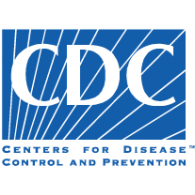0920-24DM Focus Group Guide for HCPs about Antimicrobial Resistanc
[OS] CDC/ATSDR Formative Research and Tool Development
Attachment 6 - Focus Group Guide - Providers_2.12.24_V3
[NCZEID] Formative Communications Assessment on Antimicrobial Resistance
OMB: 0920-1154

 WS-CDC
ARX – ARX Focus Group Guide
WS-CDC
ARX – ARX Focus Group Guide
Form Approved
OMB Control No.: 0920-1154
Expiration date: 03/31/2026
Antimicrobial Resistance Communications and Media Support Services
Focus Group Guide for HCPs about Antimicrobial Resistance
February 12, 2024 V3
Introduction; approx. 10 minutes
Welcome! Thank you for joining today’s discussion. My name is NAME. I’m an independent researcher and moderator with KRC Research.
The sole funder of today’s focus group discussion is the Centers for Disease Control and Prevention—CDC. Our conversation today will focus on a health topic.
I’m a professional researcher, but not a CDC employee or a subject matter expert on health topics. My role is to facilitate our conversation for the next 90 minutes. Let me tell you a bit about it.
There are no wrong answers. You may have different opinions. That’s OK—all of your experiences and opinions are important, and we want to hear from all of you.
Since we are having these groups online, we will need to talk one at a time and let everyone have time to speak. Not everyone has to answer each question, but it’s important that everyone participates throughout this conversation.
If at any time you can’t see the screen well or have difficulty hearing, let me know. We have a technician here who can help us.
Please silence your cell phones and put away portable devices.
If you need to step away from our discussion for any reason, you don’t have to ask for my permission—just step away and come back when you finish.
Because privacy is important, I’m going to share our Privacy Policy.
We will protect your privacy for today’s discussion, and nothing you say will be reported in association with your name. We will use first names only during the conversation. You may choose to use a nickname or any other name you prefer.
Your participation is voluntary—you do not have to answer anything you are uncomfortable with.
Like our technician who is with us today virtually but who you do not see, a few colleagues are also with me virtually today to watch quietly and take notes.
We are audio- and videorecording for transcribing of today’s discussion. Because we are speaking with many groups like this one, it is important for me to have an accurate record of today’s conversation.
We ask that you not share participants’ comments or participants’ identities with others outside of this group.
Thanks for joining today. We are having discussions with healthcare professionals in a mix of locations. Let’s go around and introduce ourselves. Tell us…
Your first name, a nickname, or a name you’d like to use for today’s conversation
What state you’re located in
Your role or title
What type of practice setting you work in
Awareness and Attitudes; approx. 10 minutes
Today we’re going to talk about antimicrobial resistance. As we get into the topic, we’ll look at more information. To start, let’s think about the topic broadly. SHARE TERM ON SCREEN: antimicrobial resistance
What’s the very first thing that comes to your mind when you see this?
How do you define antimicrobial resistance?
IF FOCUSED ON ANTIBIOTICS: Does antimicrobial resistance extend beyond antibiotics? What else does it encompass?
How knowledgeable do you feel about antimicrobial resistance?
What do you feel most knowledgeable about?
What do you feel less knowledgeable about?
Who or what contributes to antimicrobial resistance? Or is it something that just happens?
Who or what has the most impact on antimicrobial resistance?
PROBE: Can antimicrobial resistance cause adverse impacts? How so?
Who’s most at risk for adverse impacts from antimicrobial resistance? Why?
PROBE: What other populations? What industries are affected?
What’s most problematic or concerning about antimicrobial resistance as it relates to your patients?
To what extent do you think your patients know about this problem?
What do you wish they knew about antimicrobial resistance?
How urgent is this issue, on a national scale? Why?
Experiences and Roles; approx. 6 minutes
What experience have you had caring for patients with antimicrobial-resistant infections?
Tell me about your experience diagnosing or identifying these infections. PROBE: What’s been challenging? Surprising?
Tell me about your experience treating these infections. PROBE: What’s been challenging? Surprising?
How do you think about your role in combatting antimicrobial resistance?
How does your role differ from others? PROBE: other providers you work with in complementary roles, animal health providers, public health roles, patients, and consumers
What have you learned about antimicrobial resistance that you would want newer healthcare providers to know?
AR Actions; approx. 12 minutes
I’d like to focus on actions to combat antimicrobial resistance.
First, what are some actions or strategies that individual healthcare professionals, like you, can take to combat antimicrobial resistance?
PROBE: What can a professional do in your role in caring for patients?
IF MENTION PRESCRIBING: What actions beyond appropriate prescribing?
At the practice level, what actions, steps, or protocols can contribute to combatting antimicrobial resistance?
IF MENTION PRESCRIBING: What actions beyond appropriate prescribing?
IF MENTION PRESCRIBING: You mentioned prescribing. Are you familiar with the concept of antibiotic and antifungal stewardship? What does that entail?
What steps do you take individually, in your role with patients, that contribute to combatting antimicrobial resistance?
PROBE: What steps to prevent infections?
PROBE: What steps to improve appropriate antibiotic or antifungal prescribing?
PROBE: What steps to monitor infections or resistance patterns?
PROBE: What steps to educate patients about vaccines?
What actions, steps, or protocols does your practice at large have in place that contribute to combatting antimicrobial resistance?
What do you see as the most important thing for you to do, in your role, to combat antimicrobial resistance?
Beyond what you talked about, what other opportunities exist for you or your practice to combat antimicrobial resistance? PROBE: things you could do, things you could help your patients to do
Facilitators and Barriers; approx. 8 minutes
Now let’s think about factors that help or hurt efforts to carry out those actions to combat antimicrobial resistance.
What motivates your decisions to take actions to combat antimicrobial resistance?
PROBE: Are there requirements in place at your practice that contribute to combatting it?
PROBE IF MENTION ANTIBIOTIC STEWARDSHIP: Does your practice have any other requirements or recommendations beyond measuring and improving how antibiotics are prescribed and used?
What factors help “smooth the path” to carrying out actions to combat antimicrobial resistance?
PROBE: What information, support, structures? How do they help?
PROBE: What people? How do they help?
What makes it hard to take effective action to combat antimicrobial resistance? Why?
PROBE: What makes it hard to do more, to the extent you would like to?
PROBE: What factors are working against you?
Patient Interactions; approx. 15 minutes
Let’s talk about experiences with patients.
Who’s had conversations with patients about antimicrobial resistance? How did it come about?
How often is this a conversation topic with patients?
Why would you start a conversation about this topic?
How would you define antimicrobial resistance for a patient?
IF HAD CONVERSATION: What have you discussed with your patients on this topic?
What is or would be your approach to discussing antimicrobial resistance with a patient?
What do you want them to understand?
Have you recommended patients do anything related to this? What?
What questions have patients asked you about antimicrobial resistance?
What’s challenging about patient conversations on this topic? Why?
PROBE: What’s hard?
PROBE: What’s hard for patients to understand?
PROBE: What do patients push back on, or not follow through on?
Tell me about patient conversations about antibiotics or antifungals specifically. What do those conversations involve?
What do you tell patients about them?
What do patients ask you about them?
Do you ever talk about proper use? When?
What’s challenging about this?
What are the most impactful things patients can do to combat antimicrobial resistance? Why? PROBE BEYOND APPROPRIATE ANTIBIOTIC/ANTIFUNGAL USE
Resources and Needs; approx. 10 minutes
What resources have you used to help identify and carry out actions to combat antimicrobial resistance? PROBE: Data, facts, tools, education
Where did you get these resources?
What resources have you used to educate your patients and help them take action? PROBE: Data, facts, tools, education
Where did you get these resources?
What resources would be most useful to help you address and overcome some of the challenges to combatting antimicrobial resistance in your practice?
What resources would be helpful for you to in communicating with your patients about acting?
How would you like to receive the resources you’ve shared?
Who do you trust—or would you trust—for information and recommendations about antimicrobial resistance? PROBE: Organizations, publications, people, etc.
What can CDC do that would be helpful for you on this topic?
Materials and Terminology; approx. 12 minutes
Now I’m going to share a sheet produced by CDC and ask you to review it. When you’ve finished, we’ll talk about it. SHARE ON SCREEN: “ACTIONS FOR HEALTHCARE PROVIDERS” SHEET, ALLOW TIME TO REVIEW
What’s your reaction to what you’ve read? Why?
What stands out? Why?
Is any of this new or surprising?
Are you currently doing any of these?
Anything you are not doing? Why?
What’s your opinion of this resource from CDC? Why?
What do you like?
What do you disagree with? Why?
What concerns you?
What questions do you have?
Are there actions here that strike you as challenging to carry out? Why?
Are there actions that seem unrealistic? Why?
What would be the easiest change you could make in your practice to align with this?
Finally, I’ll share a few terms and phrases and get your thoughts on them. SHARE TERMS ON SCREEN: antimicrobial resistance, antibiotic resistance, antifungal resistance, drug resistance, superbug.
Which terms do you feel best describes when drugs used to treat bacterial or fungal infections no longer work? Why? PROBE: Is there a better term not shown here?
Which term do you prefer? Why?
Which term would you use with your patients? Why?
Thank you for your insights. We’re about to wrap up with a closing question.
What final feedback do you have for CDC as it works on provider-focused communications about combatting antimicrobial resistance?
MODERATOR THANK AND DISMISS
Public reporting burden of this collection of information is estimated to average 90 minutes per response, including the time for reviewing instructions, searching existing data sources, gathering and maintaining the data needed, and completing and reviewing the collection of information. An agency may not conduct or sponsor, and a person is not required to respond to a collection of information unless it displays a currently valid OMB Control Number. Send comments regarding this burden estimate or any other aspect of this collection of information, including suggestions for reducing this burden to CDC/ATSDR Reports Clearance Officer, 1600 Clifton Road NE, MS H21-8, Atlanta, Georgia 30333; ATTN: PRA 0920-1154
| File Type | application/vnd.openxmlformats-officedocument.wordprocessingml.document |
| Author | Laura Koehler |
| File Modified | 0000-00-00 |
| File Created | 2025-05-19 |
© 2026 OMB.report | Privacy Policy